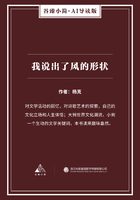For a power of judgement to be dialectical it must first of all be rationalizing; that is to say, its judgements must lay claim to universality, and do so a priori, for it is in the antithesis of such judgements that dialectic consists.Hence there is nothing dialectical in the irreconcilability of aesthetic judgements of sense (upon the agreeable and disagreeable).And in so far as each person appeals merely to his own private taste, even the conflict of judgements of taste does not form a dialectic of taste-for no one is proposing to make his own judgement into a universal rule.Hence the only concept left to us of a dialectic affecting taste is one of a dialectic of the critique of taste (not of taste itself) in respect of its principles: for, on the question of the ground of the possibility of judgements of taste in general, mutually conflicting concepts naturally and unavoidably make their appearance.The transcendental critique of taste will, therefore, only include a part capable of bearing the name of a dialectic of the aesthetic judgement if we find an antinomy of the principles of this faculty which throws doubt upon its conformity to law, and hence also upon its inner possibility.
Any judgement which sets up to be universal may be termed a rationalizing judgement (indicium ratiocinans); for so far as universal it may serve as the major premiss of a syllogism.On the other hand, only a judgement which is thought as the conclusion of a syllogism, and, therefore, as having an a priori foundation, can be called rational (indicium ratiocinatum).
SS 56.Representation of the antinomy of taste.
The first commonplace of taste is contained in the proposition under cover of which every one devoid of taste thinks to shelter himself from reproach: every one has his own taste.This is only another way of saying that the determining ground of this judgement is merely subjective (gratification or pain), and that the judgement has no right to the necessary agreement of others.
Its second commonplace, to which even those resort who concede the right of the judgement of taste to pronounce with validity for every one, is: there is no disputing about taste.This amounts to saying that, even though the determining ground of a judgement of taste be objective, it is not reducible to definite concepts, so that in respect of the judgement itself no decision can be reached by proofs, although it is quite open to us to contend upon the matter, and to contend with right.For though contention and dispute have this point in common, that they aim at bringing judgements into accordance out of and by means of their mutual opposition; yet they differ in the latter hoping to effect this from definite concepts, as grounds of proof, and, consequently, adopting objective concepts as grounds of the judgement.But where this is considered impracticable, dispute is regarded as alike out of the question.
Between these two commonplaces an intermediate proposition is readily seen to be missing.It is one which has certainly not become proverbial, but yet it is at the back of every one's mind.It is that there may be contention about taste (although not a dispute).
This proposition, however, involves the contrary of the first one.For in a manner in which contention is to be allowed, there must be a:
hope of coming to terms.Hence one must be able to reckon on grounds of judgement that possess more than private Validity and are thus not merely subjective.And yet the above principle (Every one has his own taste) is directly opposed to this.
The principle of taste, therefore, exhibits the following antinomy:
1.Thesis.The judgement of taste is not based upon concepts; for, if it were, it would be open to dispute (decision by means of proofs).
2.Antithesis.The judgement of taste is based on concepts; for otherwise, despite diversity of judgement, there could be no room even for contention in the matter (a claim to the necessary agreement of others with this judgement).
SS 57.Solution of the antinomy of taste.
There is no possibility of removing the conflict of the above principles, which underlie every judgement of taste (and which are only the two peculiarities of the judgement of taste previously set out in the Analytic) except by showing that the concept to which the object is to refer in a judgement of this kind is not taken in the same sense in both maxims of the aesthetic judgement; that this double sense, or point of view, in our estimate, is necessary for our power of transcendental judgement; and that nevertheless the false appearance arising from the confusion of one with the other is a natural illusion, and so unavoidable.
The judgement of taste must have reference to some concept or other, as otherwise it would be absolutely impossible for it to lay claim to necessary validity for every one.Yet it need not on that account be provable from a concept.For a concept may be either determinable, or else at once intrinsically undetermined and indeterminable.A concept of the understanding, which is determinable by means of predicates borrowed from sensible intuition and capable of corresponding to it, is of the first kind.But of the second kind is the transcendental rational concept of the supersensible, which lies at the basis of all that sensible intuition and is, therefore, incapable of being further determined theoretically.
Now the judgement of taste applies to objects of sense, but not so as to determine a concept of them for the understanding; for it is not a cognitive judgement.Hence it is a singular representation of intuition referable to the feeling of pleasure, and, as such, only a private judgement.And to that extent it would be limited in its validity to the individual judging: the object is for me an object of delight, for others it may be otherwise; every one to his taste.















